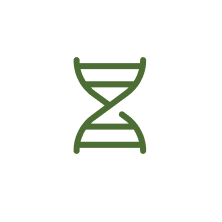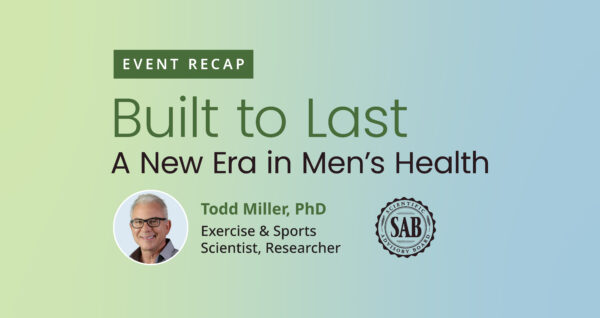The holiday season has arrived, starting with Thanksgiving and rolling on through Christmas and New Year’s. It’s a festive time of year typically filled with celebrations and gatherings, often involving lots of delicious foods. Many consider it a time to indulge in decadent meals and eat much more than usual. After all, who can resist an extra helping of mashed potatoes, or that last slice of pumpkin pie. While we may enjoy the feast, too often we pay for it later with feelings of indigestion, bloating, heartburn, and other unpleasant symptoms. After all, your body is working extra hard to accommodate and digest an unusual amount of food.
Your body uses digestive enzymes to break down food into smaller units that the body can absorb. The three main types of digestive enzymes are:1
- Amylase, which breaks down starches and carbohydrates into sugars
- Protease, which breaks down protein into amino acids
- Lipase, which breaks down lipids (fats and oils) into fatty acids
Digestion begins in the mouth where chewing mixes food with saliva, which contains amylase to start breaking down carbohydrates. In addition to salivary glands, the stomach, pancreas, and small intestines also secrete various digestive enzymes to facilitate the process of digestion.1 Overindulging in food and alcohol can overburden the natural digestive enzyme supply. Also, the body produces less pancreatic enzymes as it ages.2 This can result in the uncomfortable symptoms of indigestion including bloating, flatulence, abdominal pain, and diarrhea.1
Luckily, supplementation with digestive enzymes can help with breaking down foods and avoiding symptoms of indigestion.3 Protease, lipase, and amylase are the main digestive enzymes, but there are others, such as papain. Papain is extracted from papaya and it is another enzyme that works to break down protein.
Many common holiday dishes have dairy in them, like mac and cheese, mashed potatoes made with cream and milk, and the scoop of ice cream that goes on top of pie. While delicious, they cause unpleasant digestion issues like gas, bloating, and diarrhea in those with lactose intolerance. Lactose intolerance is the inability to digest lactose, the form of sugar found in dairy products. Lactose is broken down by an enzyme called lactase, and the decrease of lactase activity is called hypolactasia. An estimated 75% of individuals worldwide experience some level of decrease in lactase production in adulthood.3 Luckily, those with lactose intolerance are not forced to choose between symptoms like diarrhea and bloating or giving up milk, cheese, and other delicious dairy products. Studies have shown that supplementation with the enzyme lactase can prevent symptoms of lactose intolerance after ingesting dairy.3
The NeoLife Solution
While moderation is always best, the holidays are often a time to let loose and enjoy meals with family and friends. Supplementation with digestive enzymes can help reduce or eliminate unpleasant feelings of indigestion that come with overindulging.*
 NeoLife’s Beta-Gest is formulated to improve the efficiency of digestion in the stomach by providing plant-based, acid-stable enzymes, including protease and lactase, to assist in digestion.* Beta-Gest also provides hydrochloric acid to help support natural stomach acid levels using controlled-release technology for prolonged effectiveness.*
NeoLife’s Beta-Gest is formulated to improve the efficiency of digestion in the stomach by providing plant-based, acid-stable enzymes, including protease and lactase, to assist in digestion.* Beta-Gest also provides hydrochloric acid to help support natural stomach acid levels using controlled-release technology for prolonged effectiveness.*
 NeoLife’s intestine-targeted Enzyme Digestive Aid is a high-potency, comprehensive mixture of plant-derived enzymes for protein, fat, and carbohydrate digestion, enhanced by ox bile and dehydrocholic acid.* Our Targeted Delivery Technology uses a special ‘enteric coating’ to protect tablet contents from destruction by stomach acid and ensure that active enzymes reach your intestines, where they support optimal digestion.*
NeoLife’s intestine-targeted Enzyme Digestive Aid is a high-potency, comprehensive mixture of plant-derived enzymes for protein, fat, and carbohydrate digestion, enhanced by ox bile and dehydrocholic acid.* Our Targeted Delivery Technology uses a special ‘enteric coating’ to protect tablet contents from destruction by stomach acid and ensure that active enzymes reach your intestines, where they support optimal digestion.*
 NeoLife’s Beta-Zyme combines the power of Beta-Gest and Enzyme Digestive Aid into one convenient packet that targets both the stomach and the small intestine to support complete digestion and alleviate the symptoms of indigestion.* These non-habit-forming products work to address the causes of occasional indigestion, not just the symptoms so that you can fully enjoy your holiday gatherings.*
NeoLife’s Beta-Zyme combines the power of Beta-Gest and Enzyme Digestive Aid into one convenient packet that targets both the stomach and the small intestine to support complete digestion and alleviate the symptoms of indigestion.* These non-habit-forming products work to address the causes of occasional indigestion, not just the symptoms so that you can fully enjoy your holiday gatherings.*
Learn More at NeoLife U
For a more in depth look at the digestive system and holistic approaches to digestive health, check out the Digestive Health unit at NeoLife U. It’s just one of the many courses offered on NeoLife U brought to you by world class doctors, scientists, and health experts, all for free!
References:
- Goodman BE. Insights into digestion and absorption of major nutrients in humans. Adv Physiol Educ. 2010; 34(2): 44-53.
- Remond D, et al. Understanding the gastrointestinal tract of the elderly to develop dietary solutions that prevent malnutrition. Oncotarget. 2015; 6(16): 13858-98.
- Roxas M. The role of enzyme supplementation in digestive disorders. Alt Med Rev. 2008; 13(4): 307-14.


















